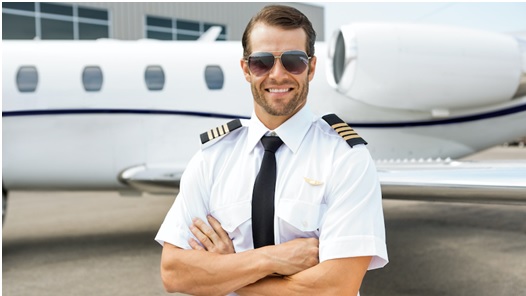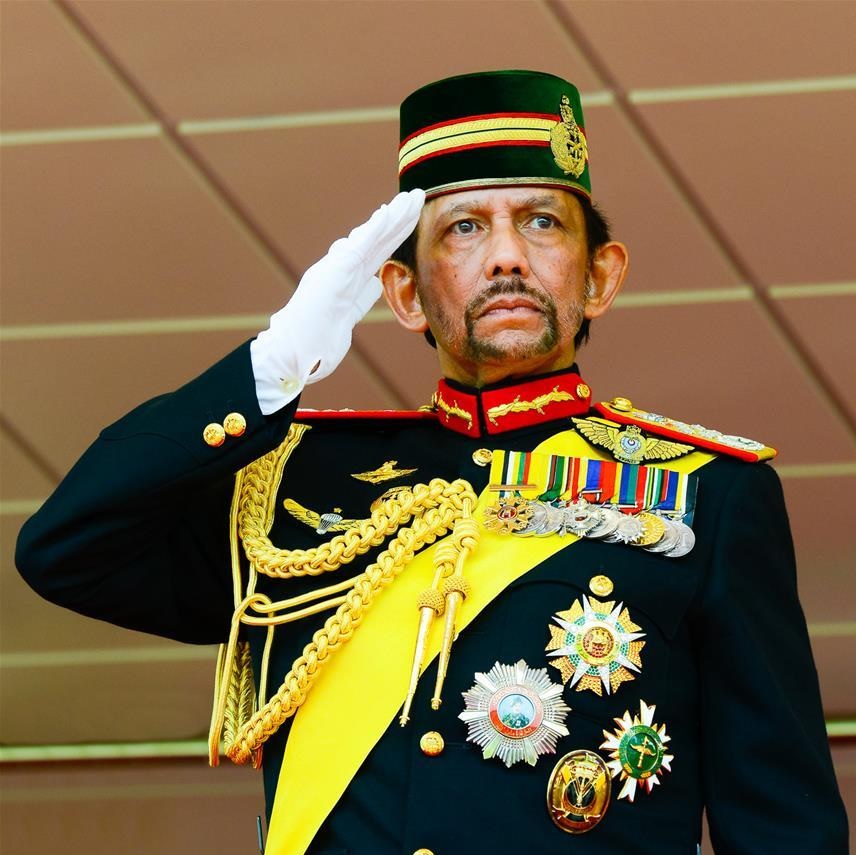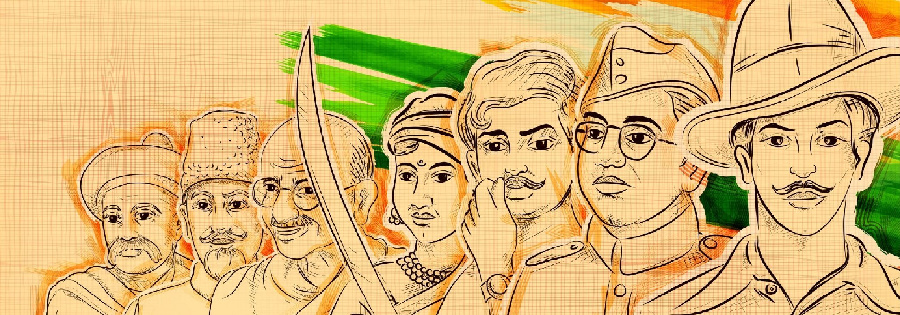How to Become a Pilot in India 2024: Eligibility Criteria, Entrance Exam

The road to becoming a pilot in India is a goal that was previously out of reach for many people. The aviation industry is attracting a large number of people’s interest. It is now the ideal moment to pursue one’s goal of becoming a pilot and living life in the skies. This desire has begun to take root in the hearts of many people. The Directorate General of Civil Aviation (DGCA) is India’s recognized body for accrediting aviation courses and institutes.
There are two ways from which you can be on a route to become a pilot:
- Commercial Pilot
- Indian Air Force
We will briefly delve into these later but first let’s know the eligibility criteria for becoming a pilot!
Eligibility Criteria to Become a Pilot in India
- Age: Not less than 17 years
- 10+2 Required Percentage: 50% (Might be different for some institutes)
- Required Subjects: Physics, Chemistry & Maths (PCM), and at the intermediate level, English is also a required subject.
- A Medical Certificate is required from appropriate authorities.
1. Commercial Pilot

A commercial pilot is an airline pilot who possesses a commercial pilot license granted by an authority and flies a certain aircraft type for the airline. The Directorate General of Civil Aviation in India is in charge (DGCA). Commercial piloting entails a great deal of responsibility.
Entrance Examinations
Admission to a pilot training school is based on a set of criteria that includes a written exam, a medical exam, and an interview. Please note a minimum of 50% is required in class 12th to join a flying school. The following is the minimum age to apply for a pilot license:
- Student Pilot License: 16 years
- Private Pilot License: 17 years
- Commercial Pilot License: 18 years
Commercial Airline Pilot
To become a commercial pilot, you must first complete the following steps:
Join a flying school and earn a bachelor’s degree in aviation.
For Pilot Training courses we have mentioned below some of the best institutes after 12th:
- Indira Gandhi Rashtriya Uran Academy
- National Flying Training Institute
- Bombay Flying Club
- Madhya Pradesh Flying Club
- Rajiv Gandhi Academy of Aviation Technology
The following is a broad outline of the admissions process:
- Written Examination:The exam covers broad English, mathematics, physics, and reasoning (10+2).
- Aptitude Test:The assessment will evaluate your knowledge of air regulations, air navigation, aviation meteorology, aircraft, and engines.
- Personal Interview & Medical examination by DGCA: Applicants who pass the written exam and ability test will be required to undergo a medical examination by the Directorate General of Civil Aviation of the Government of India.
Get a Student Pilot License
You must pass an entrance examination in order to get a student pilot license. This is a spoken test that will be administered by the School’s Chief Instructor or a representative from the Directorate General of Civil Aviation (DGCA). This license permits you to take flight lessons and fly gliders or small planes at approved flying clubs throughout the nation.
You should have completed a minimum of 250 flying hours by the end of your course, after which you may apply for a Commercial Pilot License (CPL).
Furthermore, I’d like to remind you that becoming a commercial pilot in India is extremely expensive, costing between 15- 20 lakhs. Fortunately, there is an alternative to avoid paying such expensive fees to become a pilot in India, and that is to enter the Indian Airforce. Continue reading the blog to learn more.
Indian Air Force

The Indian Air Force is one of the country’s armed services. Its major purpose is to protect Indian airspace and perform aerial combat in times of war.
Entrance Exams
NDA Exam
The National Defence Academy (NDA) is a prestigious organisation that has entered the aviation world. It is located in Pune, Maharashtra, in Khadakwasla. “Service Before Self” is NDA’s philosophy. Before everything else, the cadets are taught this.
In India, the prestigious NDA test is a once-in-a-lifetime chance for individuals who choose to pursue a career as a pilot after completing their secondary education. You must also undergo flying instruction after finishing the three-year course. After that, you’ll be a permanent commission officer.
The admission procedure for the same is:
- Written Examination: A math-based paper and basic aptitude tests which include the elements of English, Physics, Chemistry, General Knowledge, History, Geography, Maths, and Current Affairs.
- SSB Interview: There are 2 Stages
Stage 1: Intelligence, Picture Perception & Discussion Test
Stage 2: After clearing the 1st stage, 2nd stage consists of Psychological Tests
- Pilot Aptitude Test: This test can only be taken once. If you don’t pass the first time, you’ll never be eligible to take the flying branch anymore. This comprises of written and machine exams that assess your capacity to understand instruments, maintain control over your activities, and maintain mental power.
- Medical Assessment: The candidate is needed to undertake a medical exam, which will include a check of the vision, height, and weight.
- AFCAT (SSC)
The AFCAT test is administered annually by the Short Service Commission Board. Candidates who are interested in becoming a pilot can apply for the AFCAT test via the AFCAT route.
The admission procedure for the same is:
- Written Examination: Verbal ability, arithmetic ability, logic, general awareness, and military aptitude are all tested.
- SSB Interview: There are 2 Stages
Stage 1: Intelligence, Picture Perception & Discussion Test
Stage 2: After clearing the 1st stage, 2nd stage consists of Psychological Tests
- Pilot Aptitude Test: This test can only be taken once. If you don’t pass the first time, you’ll never be eligible to take the flying branch anymore. This comprises of written and machine exams that assess your capacity to understand instruments, maintain control over your activities, and maintain mental power.
- Medical Assessment: The candidate is needed to undertake a medical exam, which will include a check of the vision, height, and weight.
- CDS
The Union Public Service Commission (UPSC) conducts the Combined Defence Service Exam (UPSC CDS) two times a year, most probably in February and September. Everyone who meets the age requirements and is motivated to pass the exam can qualify for the Indian Air Force – Flying Branch.
The admission procedure for the same is:
- Written Examination: Elements of English, General Knowledge, and Maths are evaluated.
- SSB Interview: There are 2 Stages-
Stage 1: Intelligence, Picture Perception & Discussion Test.
Stage 2: After clearing the 1st stage, 2nd stage consists of Psychological Tests.
- Pilot Aptitude Test: This test can only be taken once. If you don’t pass the first time, you’ll never be eligible to take the flying branch anymore. This comprises of written and machine exams that assess your capacity to understand instruments, maintain control over your activities and maintain mental power.
- Medical Assessment: The candidate is needed to undertake a medical exam, which will include a check of the vision, height, and weight.
- NCC
Applicants from the NCC Air Wing Senior Division “C” can apply for Special Entry into the Air Force. The Indian Air Force license can be obtained first if the candidate is a member of the National Cadet Corps. The National Cadet Corps is a well-known military cadet corps that allows students at all levels to experience life as a soldier. Male individuals are only eligible to apply for NCC entry.
Important Note: You must indicate your preference for your wing, which is the Air Force, on the application form for both NDA and CDSE.
Finally, keep this thing in mind that no particular profession is superior to the other. You’ll need strong decision-making abilities, persistence, and the capacity to recognize and manage unusual events in both disciplines. Hence, if an individual is really dedicated and has these skills, it’s highly advisable to consider pursuing a career in this field and fly like a free bird!




